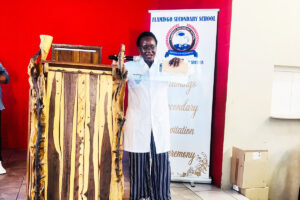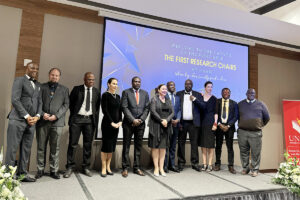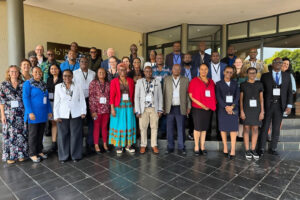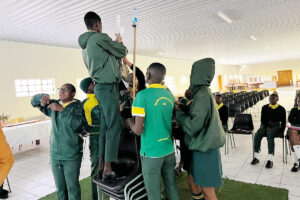- In the bilateral cooperation between the Governments of the Republic of Namibia and the Federal Republic of Germany, it was agreed, among others, to support the environment and tourism sector
- Germany, through KfW Development Bank, provided financial support to the extension of the UNAM Katima Mulilo Campus
- The cooperation included the development of related academic and research programs, and the construction of the Department of Wildlife Management and Tourism Studies
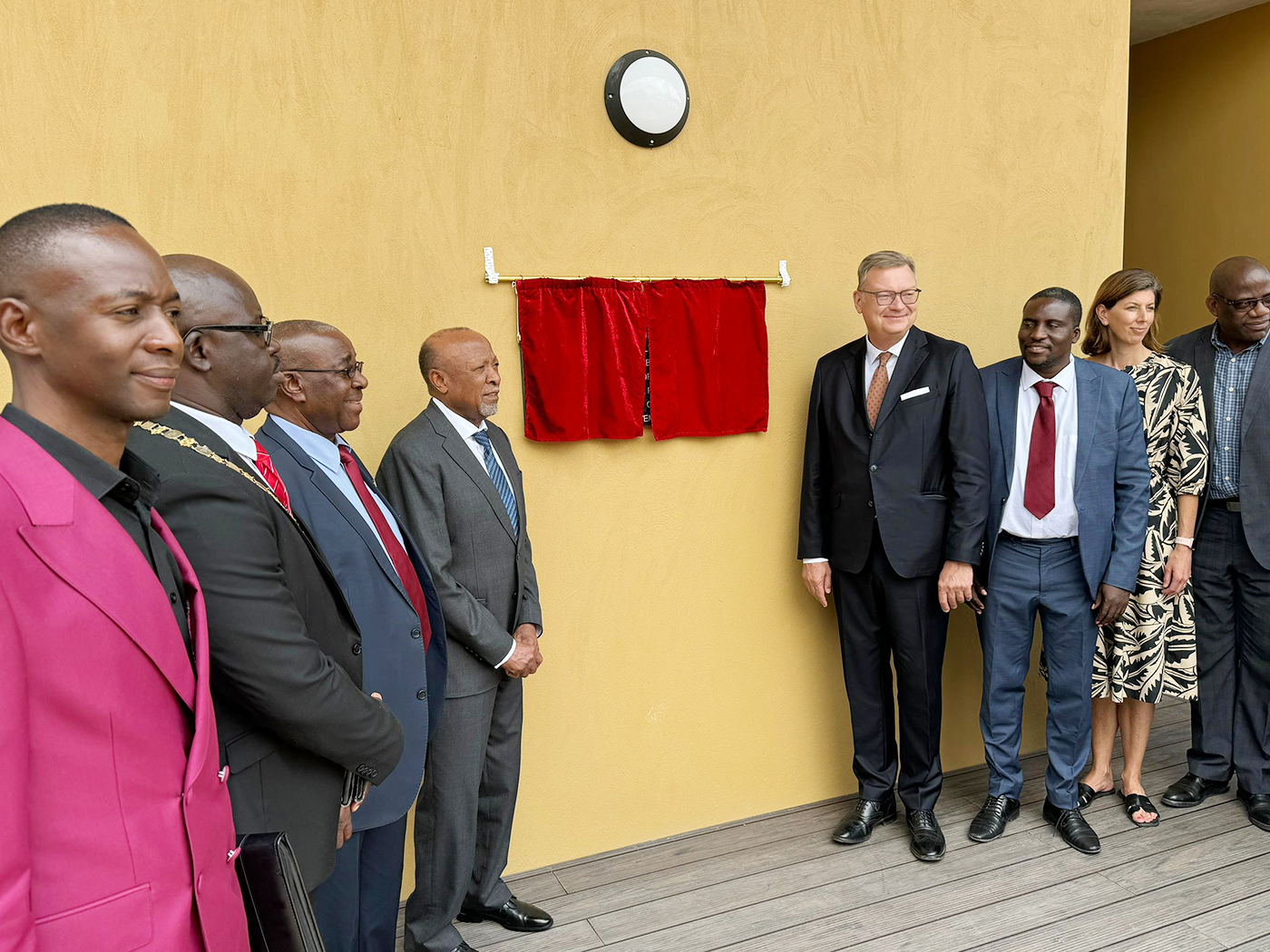
On 05 November 2024, His Excellency Dr. Nangolo Mbumba, the President of the Republic of Namibia, and UNAM Chancellor, officially inaugurated the UNAM Katima Mulilo Campus Extension.
Hon. Lawrence Sampofu, Governor of Zambezi Region, His Excellency Dr. Thorsten Hutter, Ambassador of the Federal Republic of Germany, and the Vice Chancellor of UNAM, Prof. Dr. Kenneth Matengu, witnessed this important event.
The new facilities will host the Department of Wildlife Management and Tourism Studies (DWMTS). The DWMTS at Katima Mulilo Campus was established in 2012 with an intent to provide high quality-education in teaching, research and advisory services to students, local and regional institutions, and communities.
The rationale is mainly to protect and conserve wildlife, use natural resources sustainably, develop competitive tourist destinations and contribute to the economy.
The goal of the Department is to create demand-oriented qualifications for wildlife management related fields for Namibian and SADC students that are adapted to the needs of potential future employers in government, industry, and civil society. To ensure practical training of students, the surrounding parks and tourism establishments are integrated into the teaching.
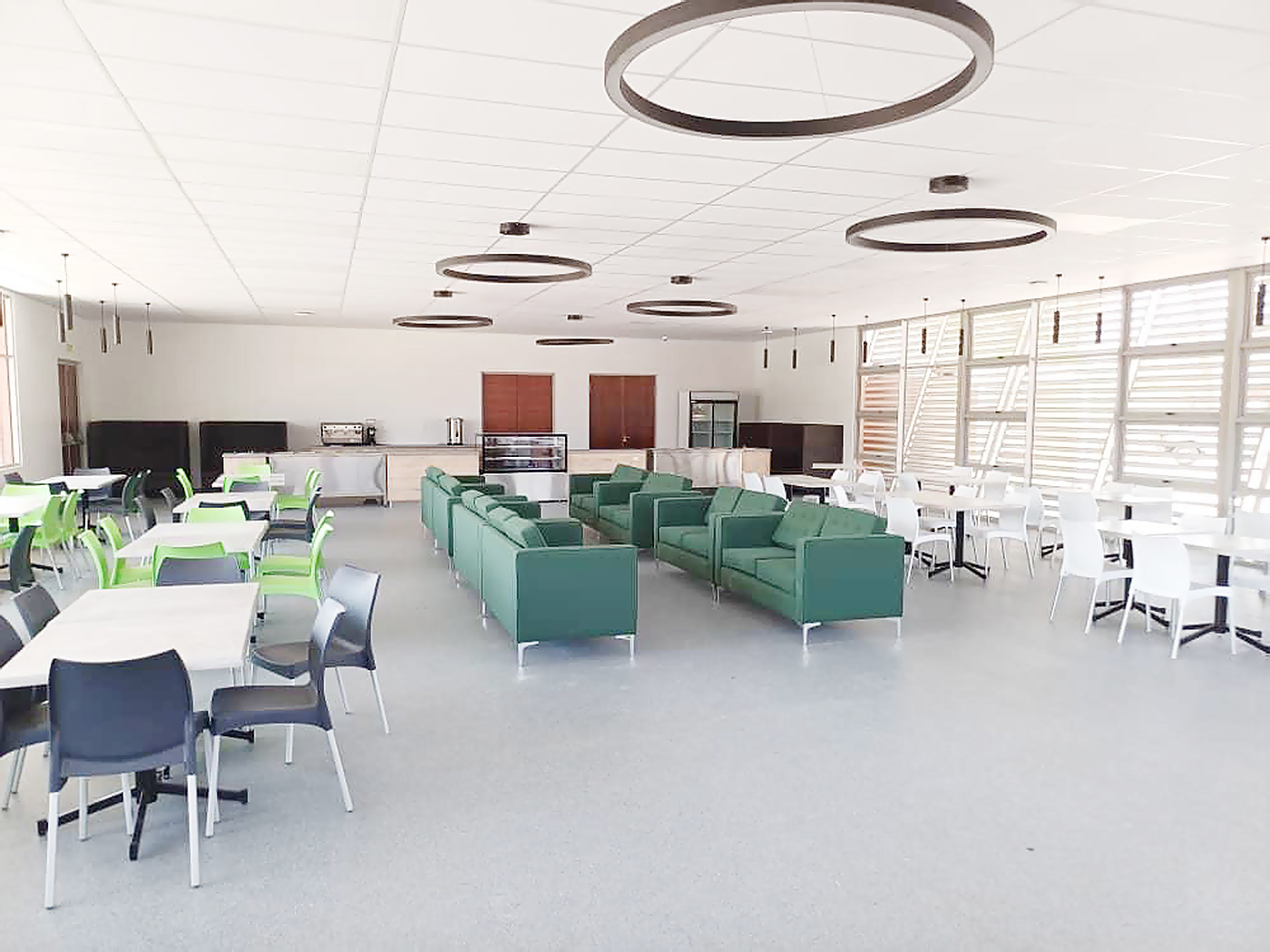
Committed in 2015, the financial grant from the German cooperation was mainly initiated for infrastructure development and expansion of the DWMTS. This initiative allows UNAM to exemplify an image and ideal of excellence in the field of Wildlife Management and Ecotourism education and research sector.
The programme and respective educational extension would act as a beacon to the countries of the Southern African Development Community (SADC) transboundary management of natural resources and the structures of protected areas in the SADC region.
The buildings intend to blend well in its’ surrounding nature and match the topic of studies hosted. To achieve this, the Namibian architects from Deon Pretorius Architects use sustainable materials, environmentally friendly building technics like rainwater harvesting and elevated walkways between the buildings to allow undisturbed nature underneath.
On the other side, the facilities host modern laboratories and study areas for an improved learning environment.
The Katima Mulilo Campus extension will have a capacity for 120 students. The 7 new buildings host lecture rooms, laboratories, a library as well as dining facilities and offices.
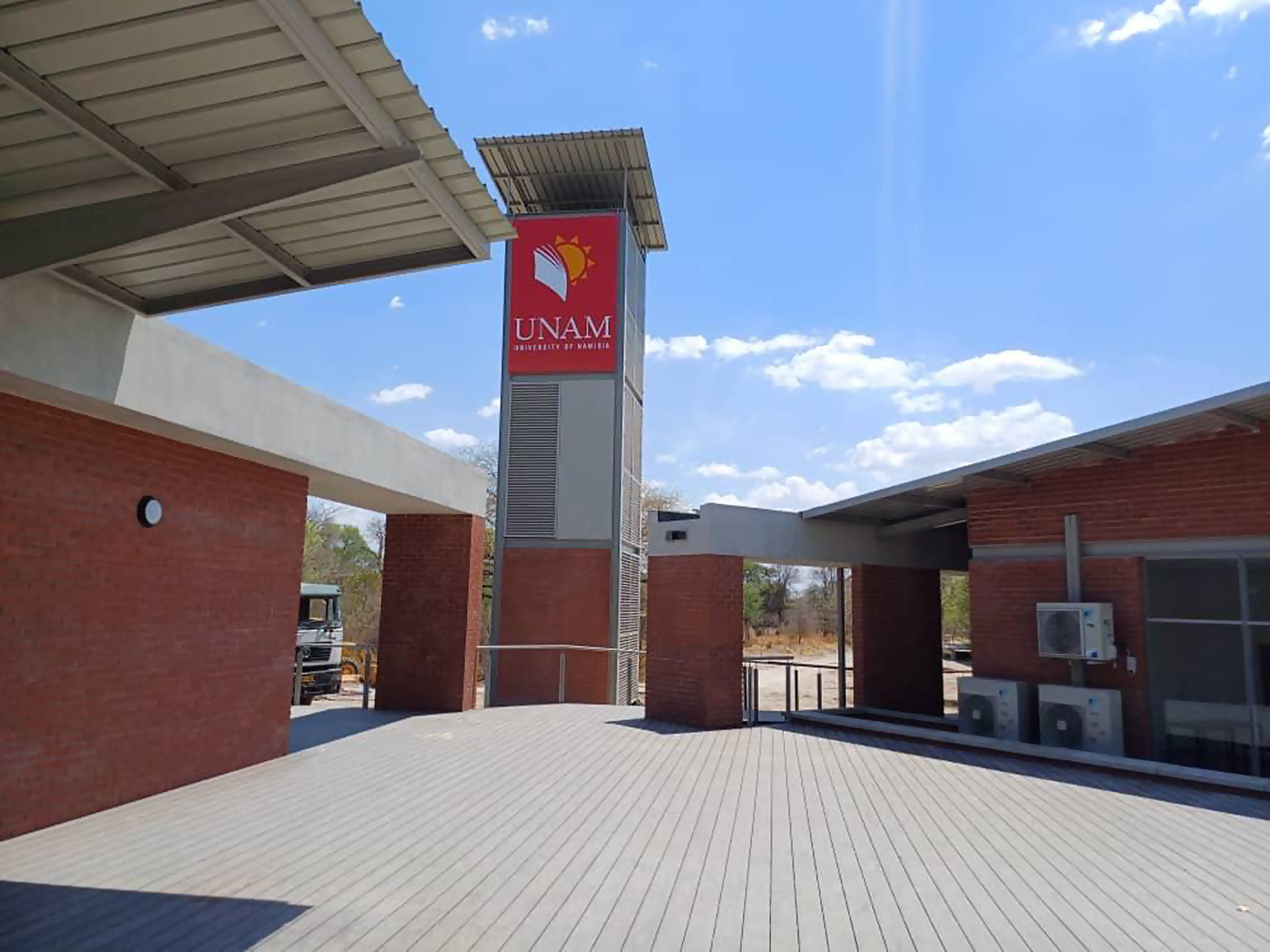
In a second phase of the project, the extension will include accommodation facilities for students and visitors as well as a state-of-the-art wastewater treatment plant. The project is also providing support to the academic and human resource development of the DWMTS.
The project is supported through the Namibian-German bilateral cooperation. The German side provides an overall EUR 17 million (app. NAD 323 million) for the two phases of the project. The Namibian side contributes another EUR 3 million(app. NAD 57 million).
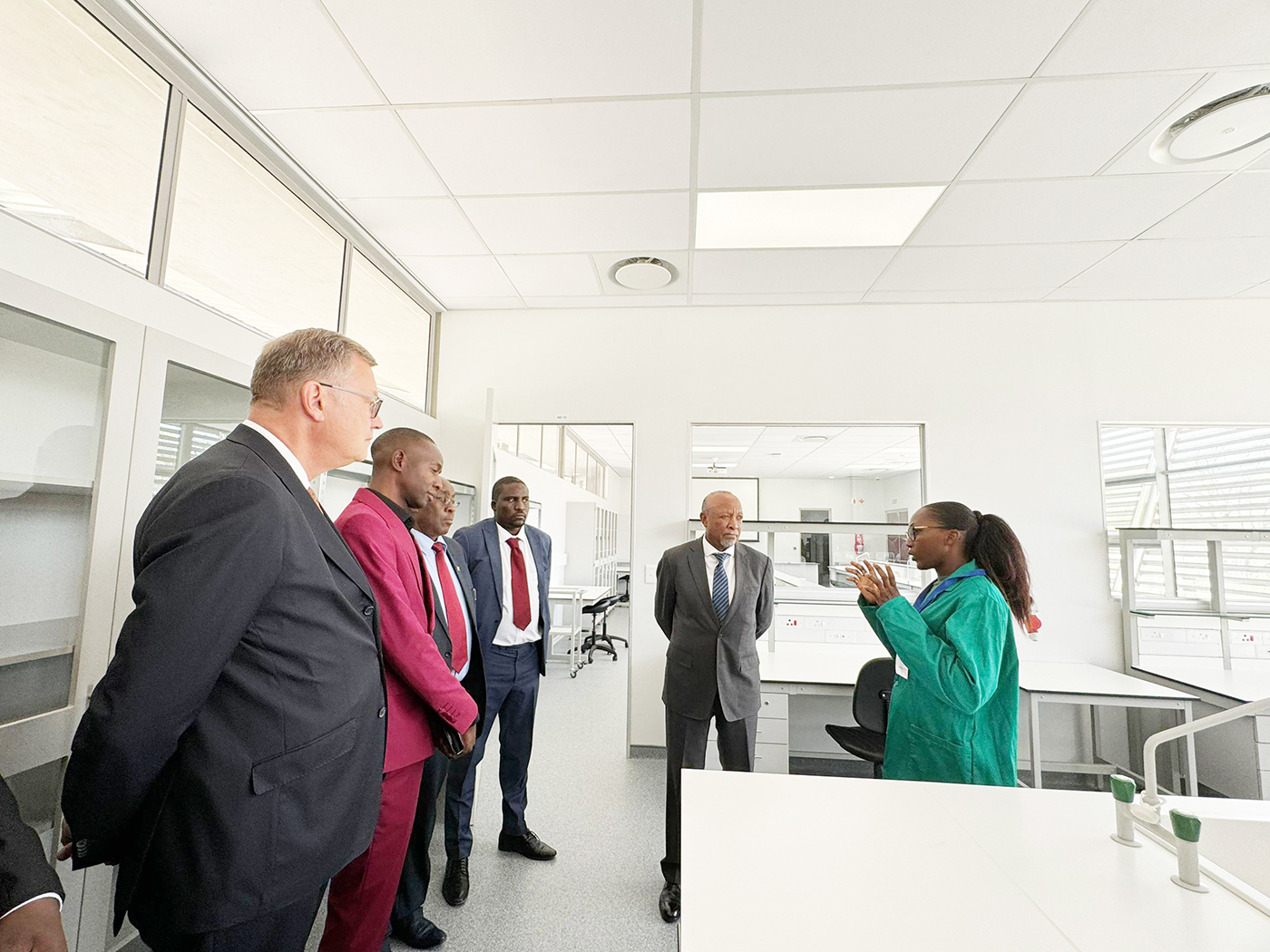
Currently, German Development Cooperation is supporting the enhancement of tertiary education in Namibia with two projects. Besides funding to extend the UNAM Campus in Katima Mulilo for the Department of Wildlife Management and Tourism Studies, the Jose Eduardo dos Santos Campus in Ongwediva saw the construction of the German Wing as well as supporting hostel facilities and practical workshops.
German Development Cooperation 1990 – 2024
From 1990 until present, the funding provided to Namibia as part of German Development Cooperation (grants and loans) amounts to approx. EUR 1.6 billion (approx. NAD 32.3 billion). The KfW portfolio under current implementation comprises over 40 projects with a total funding volume of EUR 788.6 million (approx. NAD 15.4 billion), while future projects with a total funding volume of approx. EUR 123 million (approx. NAD 2.4 billion) are under preparation.



